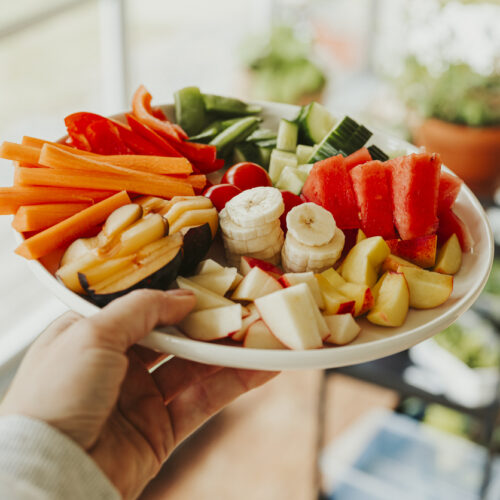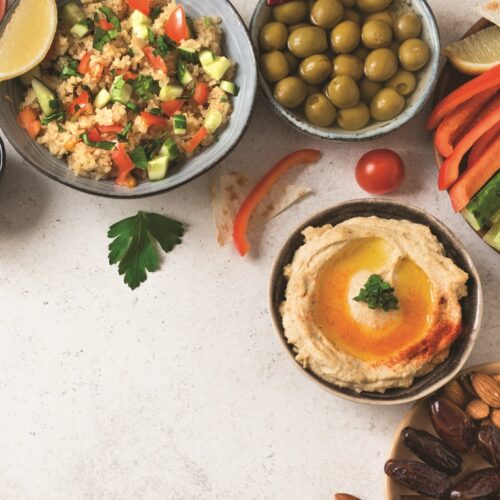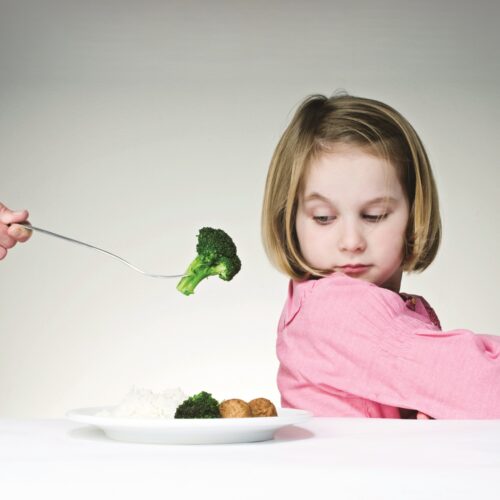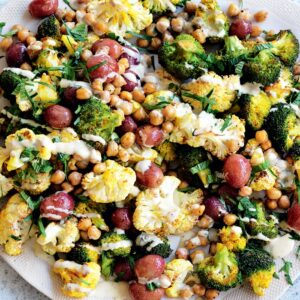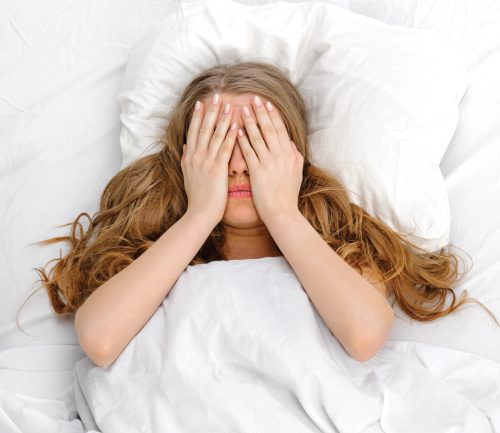
If you’re struggling to get out of bed, or feel like a nap at 3pm, it’s time to boost your energy levels. Dietitian Brooke Longfield shows you how.
Ever feel as though you are running on empty? You’re not alone!
While it’s not unusual to feel a bit tired and run-down, sometimes, particularly when going through stressful times, ongoing extreme tiredness is not normal or healthy.
Low energy levels can be directly related to what you’re eating and drinking, the quality of your sleep and the amount of rest you take. When life becomes busy, it’s all too easy to grab unhealthy food and drinks on the run, and it can be difficult to unwind or switch off. All of this can wreak havoc with your energy levels.
No quick fix
If you’re feeling tired and need a boost, you might reach for energy drinks or sugary snacks. A fourth or fifth coffee to get through the afternoon slump is also the norm for many people.
The problem is, these quick-fixes can end up being part of the problem, fuelling the cycle of fatigue and leading to other issues such as weight gain.
It’s best to look at the causes of low energy rather than just masking them by having another cup of coffee.
Here are some factors to consider:
- Medical causes Unrelenting exhaustion might be a sign of an underlying illness
- Lifestyle Excess caffeine or alcohol intake, a poor diet or lack of regular exercise can lead to low energy levels.
- Work Workplace stress is recognised as a leading cause of fatigue.
- Emotional stress Fatigue can be a common symptom for people who are coping with mental health problems such as depression and grief.
To help you out, we’ve dug a little deeper into seven common health symptoms. Find out what they might mean, and how a few small additions to your diet can help you turn things around.
-
You’re dehydrated
Staying well hydrated is really important for your body to work at its best and can make a big difference to how you feel.
The amount of fluid you need to drink varies from person to person and is influenced by factors such as how much you sweat, whether you’re working outdoors or in an air-conditioned office and the time of year.
Fatigue fighting tip
Drink at least six to eight glasses of water a day. Water is the best drink, so carry a bottle of it with you at all times or keep a water glass on your desk as a reminder to top up. Get into the habit of noting how much you have each day. If you find water a bit boring, you can always add a squeeze of lemon or lime. As well as boosting your health, you’ll build your savings by sticking to water.
-
You’re not eating enough carbs
Carbohydrates are your body’s first preference for energy, so it’s important to include food such as bread, cereal, potato, whole grains, rice, pasta and fruit at every main meal. If you cut out carbs, it’s likely you will begin to feel tired… but not all carbs are equal.
For lasting energy, eat low-glycaemic index (GI) carbs that are broken down and digested slowly. These are called ‘complex’ carbs and include high-fibre foods such as wholegrain bread, brown rice, lentils and beans, as well as wholemeal pasta.
Fatigue fighting tip
Choose low-GI carbs for every meal. Eating low-GI carbs keeps you full for longer, which helps with weight control. In the long term, this also helps reduce your risk of developing type 2 diabetes and heart disease.
-
You’re sitting down
Many of us spend hours every day sitting down at work and, often, go home and do the same. Sitting for prolonged periods at your desk is not just bad for your health, it’s a major energy drain and mentally exhausting.
Standing up from your desk every 30 minutes helps to get your blood circulating through your body and will send more oxygen to your brain, which increases alertness and helps you to concentrate.
Fatigue fighting tip
Walk in the lunchtime sun. Did you know exposing your eyes to daylight helps regulate hormones that affect your mood and how well you sleep? Enjoy a short power walk in your lunch break, to boost your energy levels for the afternoon.
-
You’re often skipping meals
There are a lot of theories regarding the ideal number of times to eat in a day, and when. The truth is, it’s important to eat regularly for steady energy levels, but there isn’t a ‘one size fits all’ rule. It depends on what time you get up, what time you go to bed and when you exercise.
What’s important is to get the timing right for you. For some, that may be three meals and one or two snacks. For others, four moderate-sized meals are right. The key is to eat a healthy balance of foods during the day without relying on high-sugar, low-nutrient snacks and drinks.
Fatigue fighting tip
Have a balanced breakfast. A good start to the day means you won’t be reaching for the over-sized scones by 10am. Try poached eggs on toast, muesli with milk or a yoghurt-based fruit smoothie.
-
You’re drinking too much coffee
While coffee may give you a quick kick, it can ultimately leave you feeling even more tired, especially if it disrupts your sleep. Caffeine stays in your system for a long time – you’ll still have half the caffeine in your body six hours after drinking a cup of coffee.
This means when you go to bed there can still be some caffeine in your system. It won’t necessarily stop you going to sleep, but it might stop you receiving the deep sleep you need to feel really rested.
Fatigue fighting tip
Swap your afternoon coffee for herbal tea. If caffeine is affecting your sleep, aim to have your coffee or tea in the earlier part of the day so most of the caffeine has cleared your system by bedtime.
-
You have a medical condition
If fatigue is a big issue for you, don’t just put up with it, visit your doctor. Other reasons for extreme tiredness that may need to be investigated by your GP include:
Coeliac disease
It’s estimated around one in 100 New Zealanders have coeliac disease. With coeliac disease, the gut is damaged by eating gluten. As a result, the body is unable to properly absorb many of the nutrients in food, such as iron. Extreme tiredness may result.Diabetes
Having high blood sugar levels can cause extreme tiredness and is a common symptom of undiagnosed diabetes. To see if you are at risk, check out diabetes.org.nzIron deficiency
Not enough iron (iron deficiency anaemia) means your cells don’t get enough oxygen, resulting in fatigue. Young women are at greatest risk of iron deficiency, so top up your stores with lean red meat, seafood, eggs, legumes and leafy greens.Chronic fatigue syndrome
This serious ongoing fatigue does not go away, even with sleep or rest. The cause is not known, but viral infections, immune system issues and hormonal imbalances are some suggestions. Seek medical advice if you think this sounds like you.Underactive thyroid
This means your body isn’t making enough thyroid hormone and it can result in you feeling very tired. Some people will also experience weight gain. -
You’re not sleeping enough
It seems like a no-brainer but, for people who feel low in energy, one of the biggest issues is inadequate and/or poor-quality sleep. Most people need at least seven hours quality sleep each night, and even more in the growing teenage years or if you’re doing a lot of exercise. Good quality sleep is also key to maintaining a healthy weight.
Fatigue fighting tip
Cut down your screen time before bed. The blue light emitted from TV screens, phones and laptops disrupts the sleep-inducing hormone melatonin. Find a way to relax and slow your mind.
Eat to boost your energy
Load up on these high-octane foods to recharge your energy levels:
- Kumara Rich in carbs and vitamin C for immunity
- Eggs Jam-packed with protein and nutrients
- Bananas A speedy source of carbs, B vitamins and fibre
- Wholegrain bread A great source of low-GI carbs
- Nuts Chock-full of fibre, protein, healthy fats and magnesium
- Beans and lentils Perfect for long-lasting energy
- Leafy greens High in fatigue-fighting folate and B vitamins
- Lean red meat Filled with energising iron
Article sources and references
- Australian Psychological Society. 2015. Stress and wellbeing: How Australians are coping with life: The findings of the Australian Psychological Society Stress and Wellbeing in Australia Survey 2015https://www.psychology.org.au/news/media_releases/6November/pw1
- Better Health Channel. 2013. Iron. betterhealth.vic.gov.au Accessed January 2018https://www.betterhealth.vic.gov.au/health/conditionsandtreatments/iron
- Better Health Channel. 2014. Iron deficiency – adults. betterhealth.vic.gov.au Accessed January 2018https://www.betterhealth.vic.gov.au/health/conditionsandtreatments/iron-deficiency-adults
- Diaz KM et al. 2017. Patterns of sedentary behavior and mortality in US middle-aged and older adults: A National Cohort Study. Annals of Internal Medicine 167:465-75https://www.ncbi.nlm.nih.gov/pubmed/28892811
- Hubalek S et al. 2010. Office workers’ daily exposure to light and its influence on sleep quality and mood. Lighting Research & Technology 42:33-50https://journals.sagepub.com/doi/abs/10.1177/1477153509355632
- Meat & Livestock Australia. 2014. Are you getting enough iron? mla.com.au Accessed January 2018https://www.mla.com.au/globalassets/mla-corporate/research-and-development/program-areas/human-nutrition/are_you_getting_enough_iron.pdf
- National Health and Medical Research Council. 2015. Eat for Health – Serve Sizes. eatforhealth.gov.au Accessed January 2018https://www.eatforhealth.gov.au/food-essentials/how-much-do-we-need-each-day/serve-sizes
www.healthyfood.com



